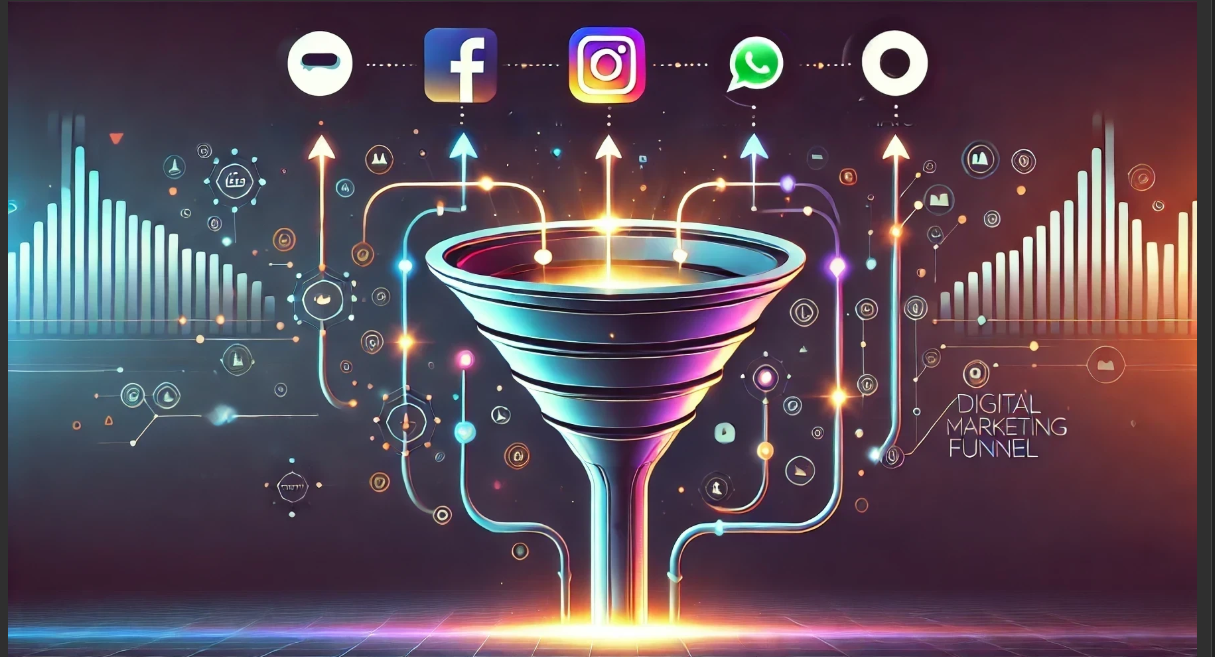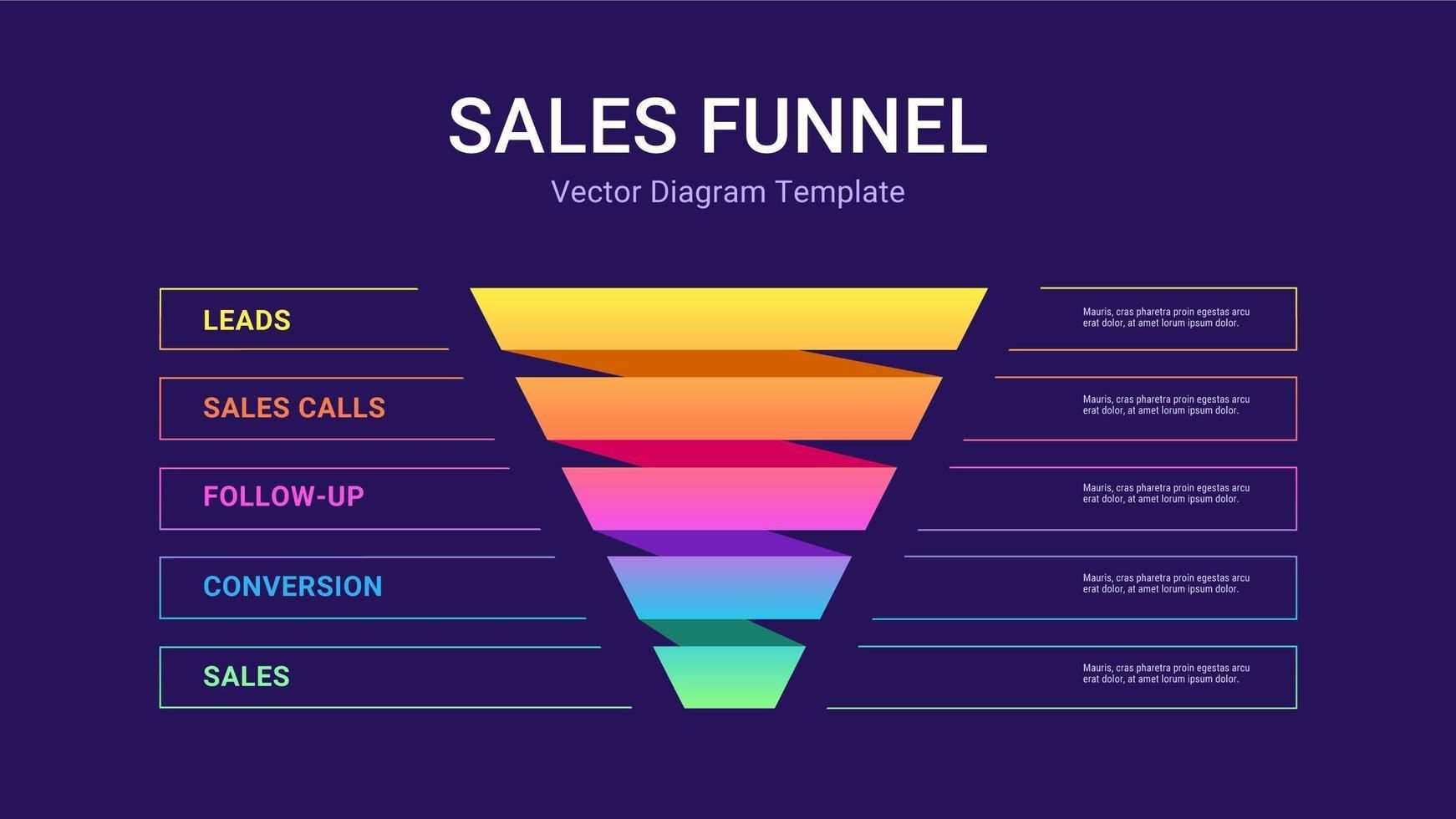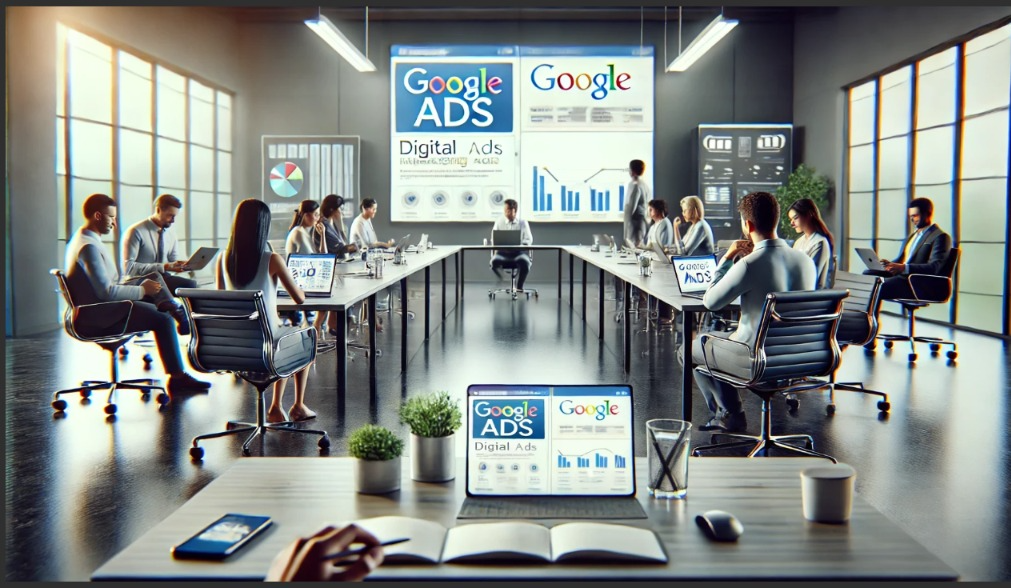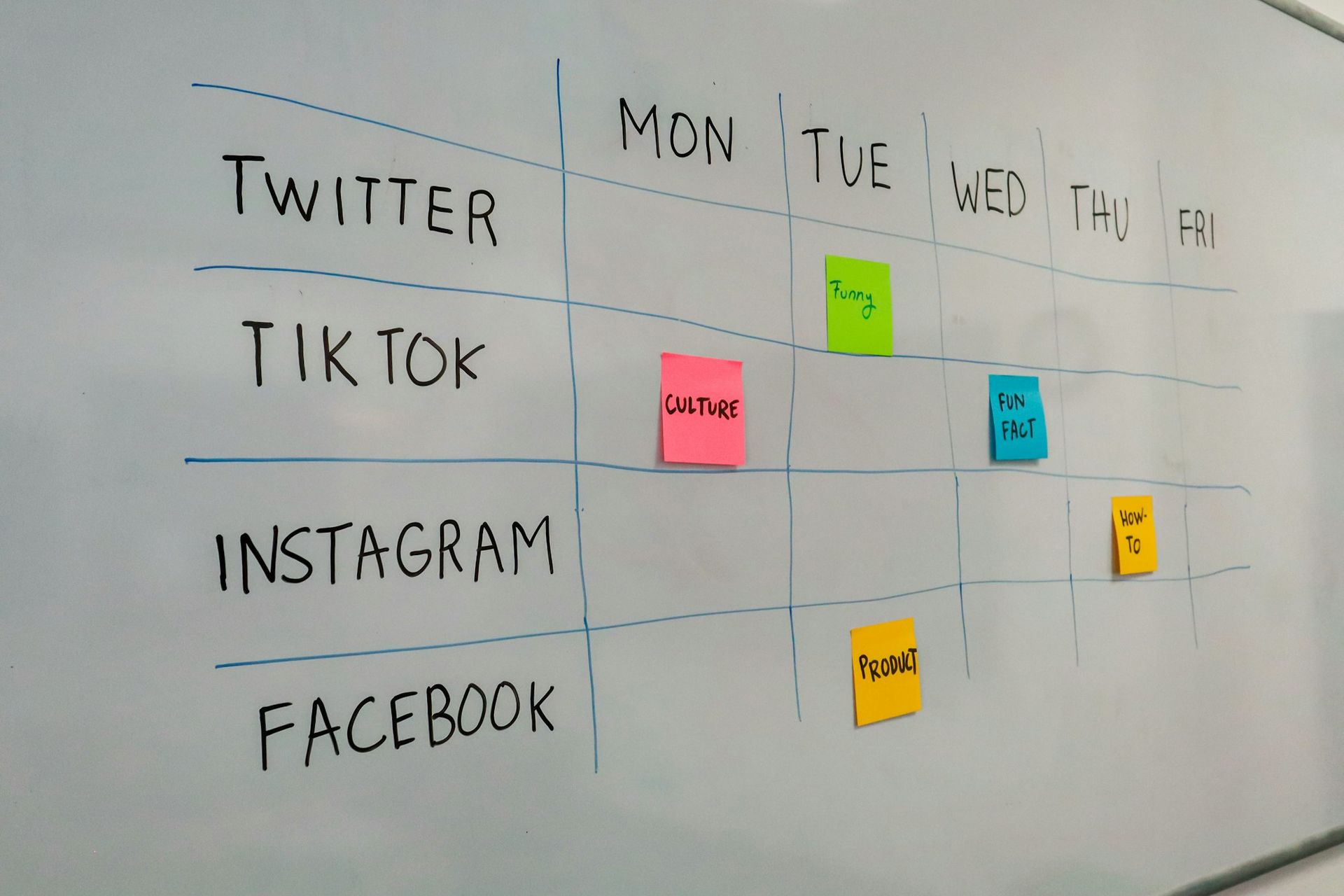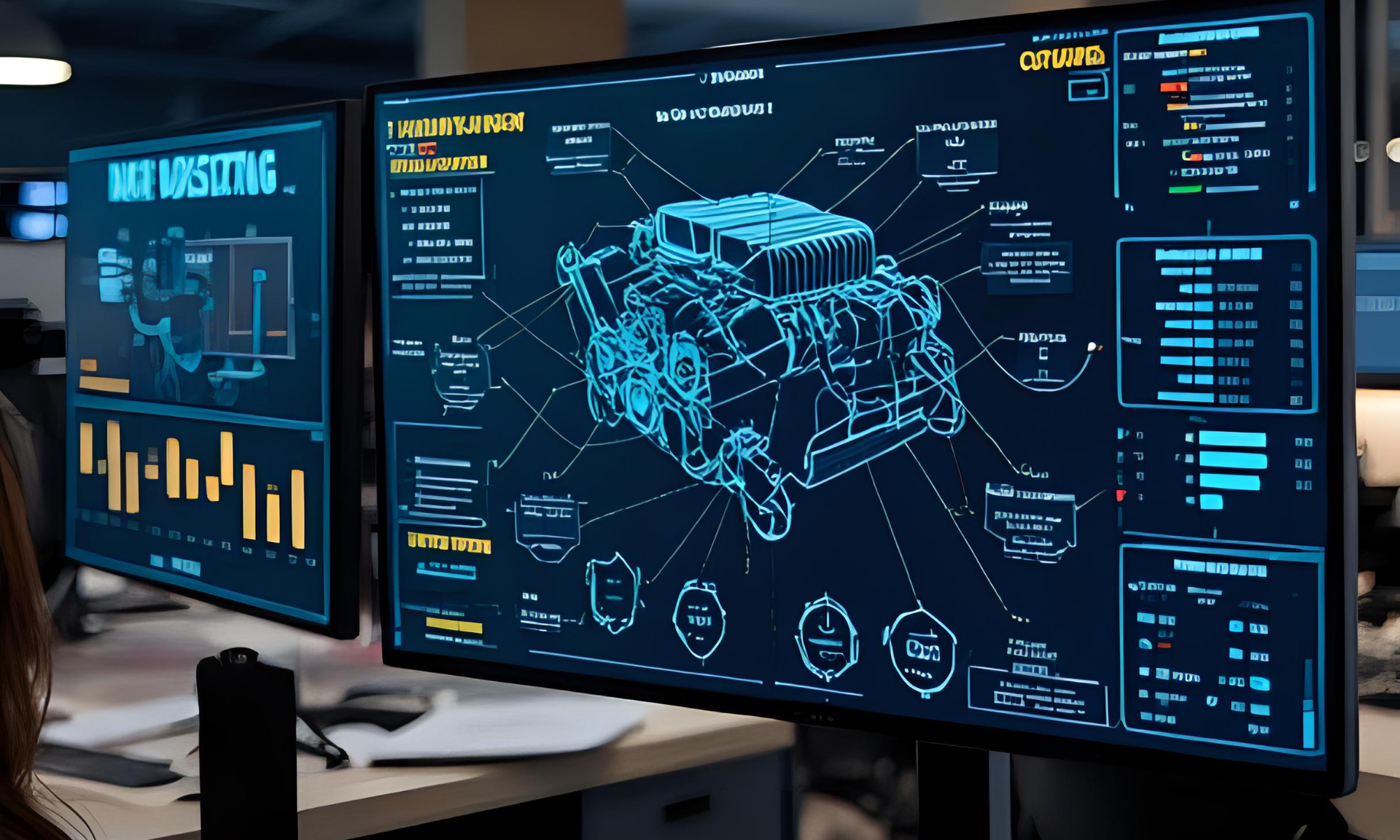AI & Automation: The Future of Integrated Marketing
The AI Marketing Revolution
Personalization reaches new heights with AI, tailoring content and offers to individual customer preferences in real time. Machine learning algorithms analyze vast datasets to identify patterns, predict behavior, and deliver highly relevant interactions across all channels. This precision not only boosts engagement but also builds stronger customer relationships, as individuals feel understood and valued. By automating personalized communications, businesses can efficiently scale their outreach while maintaining a human touch, fostering loyalty and driving conversions.
Meanwhile, ethical considerations become increasingly crucial as AI adoption grows in marketing. Ensuring data privacy, algorithmic transparency, and fairness in automated decision-making is paramount. Marketers must implement robust safeguards to prevent biases, avoid manipulative tactics, and uphold customer trust. As AI systems become more sophisticated, ongoing monitoring and adaptation of ethical frameworks will be necessary to navigate the evolving landscape and maintain responsible practices that benefit both businesses and their customers.

Table of Contents
1. Introduction: The AI Marketing Revolution
2. Understanding AI-Driven Integrated Marketing
3. The Current State of AI in Marketing (2025)
4. Key AI Technologies Transforming Marketing
5. Automation in Omnichannel Marketing
6. Personalization at Scale: AI's Biggest Impact
7. Predictive Analytics and Customer Journey Optimization
8. AI-Powered Content Creation and Optimization
9. Measuring ROI and Performance in AI Marketing
10. Implementation Strategies for Businesses
11. Future Trends and Predictions
12. Conclusion
13. FAQ Section
Understanding AI-Driven Integrated Marketing
AI-driven integrated marketing represents the evolution of traditional multichannel approaches into intelligent, interconnected systems. Unlike basic automation that follows predetermined rules, AI marketing creates adaptive experiences that learn and optimize continuously.
What Makes AI Marketing Integration Different:
Modern integrated marketing powered by AI goes beyond simple channel coordination. Unlike traditional marketing approaches that treat each channel separately, omnichannel automation creates a unified, seamless experience across all touchpoints. This integration ensures consistent messaging while allowing for channel-specific optimization.
The technology stack for successful AI marketing integration includes Customer Data Platforms (CDPs), marketing automation engines, and predictive analytics tools. At the core is a powerful Customer Data Platform (CDP) that collects, unifies, and activates customer data from disparate sources.
Key Components of AI Marketing Integration:
Real-time Data Unification
Instant synchronization across all customer touchpoints
Predictive Customer Modeling
AI algorithms that anticipate customer behavior and preferences
Dynamic Content Optimization
Automated testing and optimization of messaging across channels
Intelligent Journey Orchestration
AI-guided customer path optimization based on real-time signals
This approach has proven highly effective. Organizations conducting weekly integrated performance reviews typically see 3-5× better results than those operating channels independently.
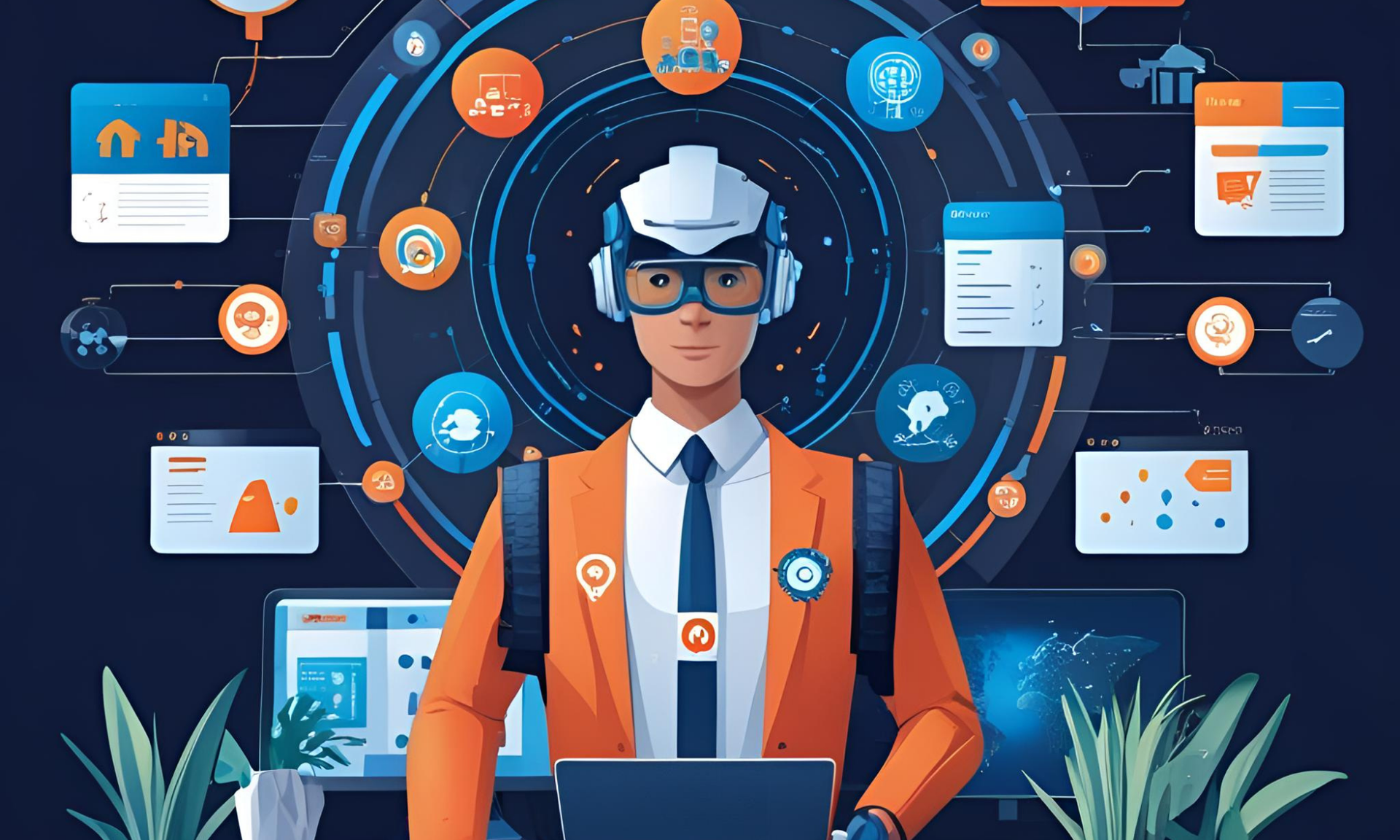
The Current State of AI in Marketing (2025)
The AI marketing landscape in 2025 has matured significantly, with over 37% of marketing teams having embraced AI as a core part of their strategy. This widespread adoption marks a critical inflection point where AI transitions from experimental technology to business-critical infrastructure.
Current Adoption Patterns:
Despite rapid advancement, adoption remains uneven across organizations. Surveys suggest that around one third of marketers weren't using GenAI for common marketing applications, indicating significant opportunity for competitive advantage among early adopters.
The most successful implementations focus on proven use cases. The most common applications of AI were using it to support copywriting for email marketing, organic search and social media. These foundational applications provide measurable ROI while building organizational confidence in AI capabilities.
Technology Evolution in 2025:
Three major technological shifts are reshaping AI marketing:
Advanced Language Models
Natural language processing (NLP) has evolved to generate human-like content that resonates with each audience segment
Computer Vision Integration
Enhanced visual content analysis and brand preference understanding
Conversational AI Advancement
More sophisticated customer interaction capabilities across channels
Platform Integration Trends
Marketing leaders are opting to integrate AI solutions into their existing ecosystems, and they're focusing on tools that deliver measurable ROI and seamless integration. This approach prevents technology stack bloat while maximizing existing investments.
The shift toward integration reflects market maturity. "2024 was a year of evaluation, and 2025 will be about optimization," said Mark Zembal, CMO of CloudBolt.
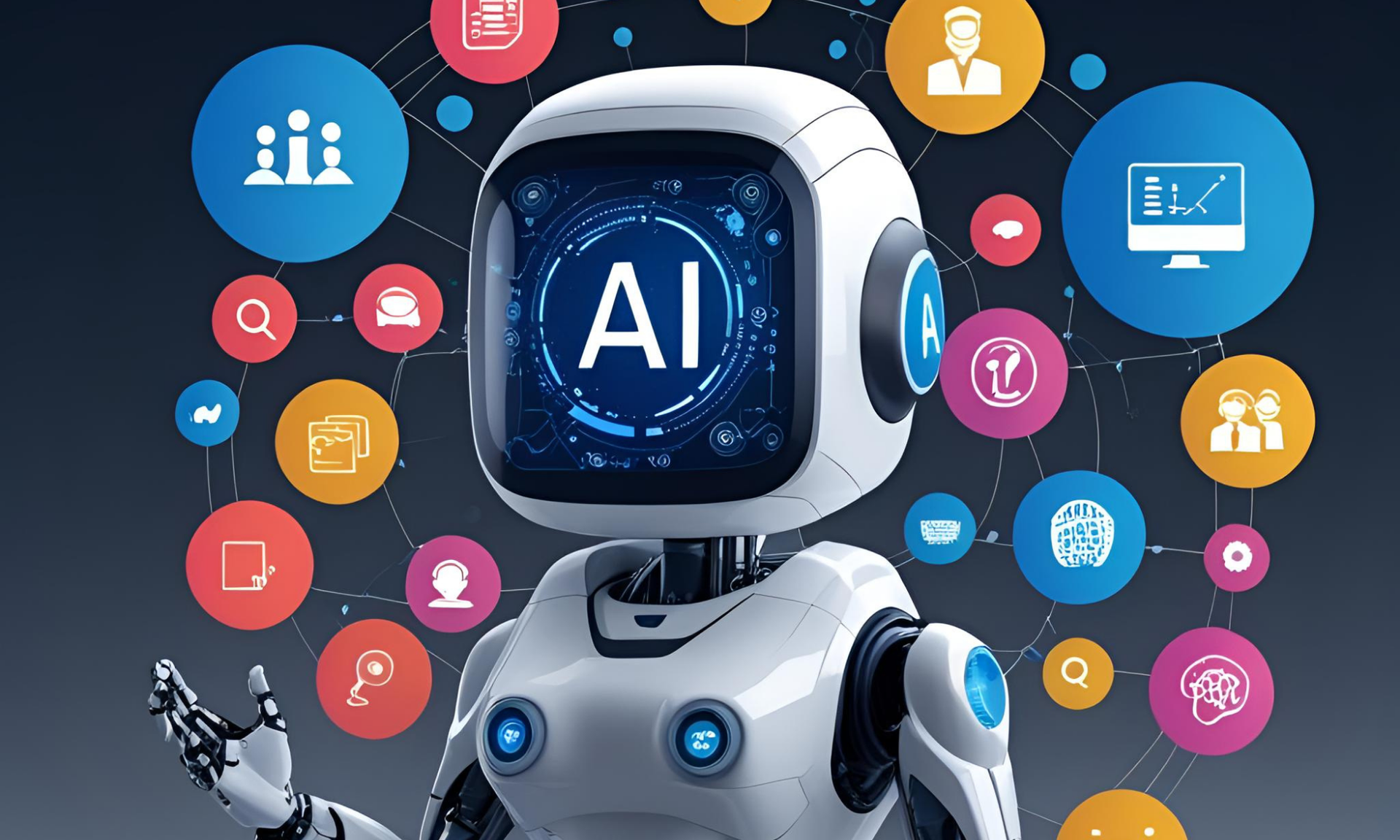
Key AI Technologies Transforming Marketing
Several core AI technologies are driving the integrated marketing revolution, each contributing unique capabilities that enhance customer experiences and marketing efficiency.
Machine Learning and Predictive Analytics:
Machine learning forms the foundation of modern marketing AI, enabling systems to identify patterns and make predictions from vast datasets. Tools like Dynamic Yield and Adobe Target are enabling marketers to make real-time adjustments to their customers' (and potential customers') experiences.
These platforms analyze visitor behavior in real-time, automatically personalizing experiences. For example, if a visitor browses winter jackets, the system learns this preference and customizes future visits to prominently feature similar products.
Natural Language Processing (NLP):
NLP technology has revolutionized content creation and customer communication. Advanced NLP systems can now generate contextually appropriate content, analyze sentiment across customer interactions, and optimize messaging for specific audience segments.
Computer Vision and Visual AI:
Computer vision technology can analyze visual content and understand brand preferences at a deep level. This capability enables automated visual content optimization, brand monitoring across social platforms, and enhanced product recommendation systems.
Conversational AI and Chatbots:
Modern conversational AI goes beyond simple question-and-answer systems. According to Statista, 26% of business-to-business (B2B) marketers using chatbots in their marketing programs gained between 10 and 20% more lead generation volumes.
AI Agent Technology:
The emergence of AI agents represents the next evolution in marketing automation. These advancements aren't just incremental improvements; they represent a fundamental shift in how brands can connect with their audiences.
Voice Search and Audio AI:
Voice search is becoming more integrated into daily life, optimizing for voice-driven queries will become crucial. This trend requires marketers to optimize content for conversational queries and natural speech patterns.
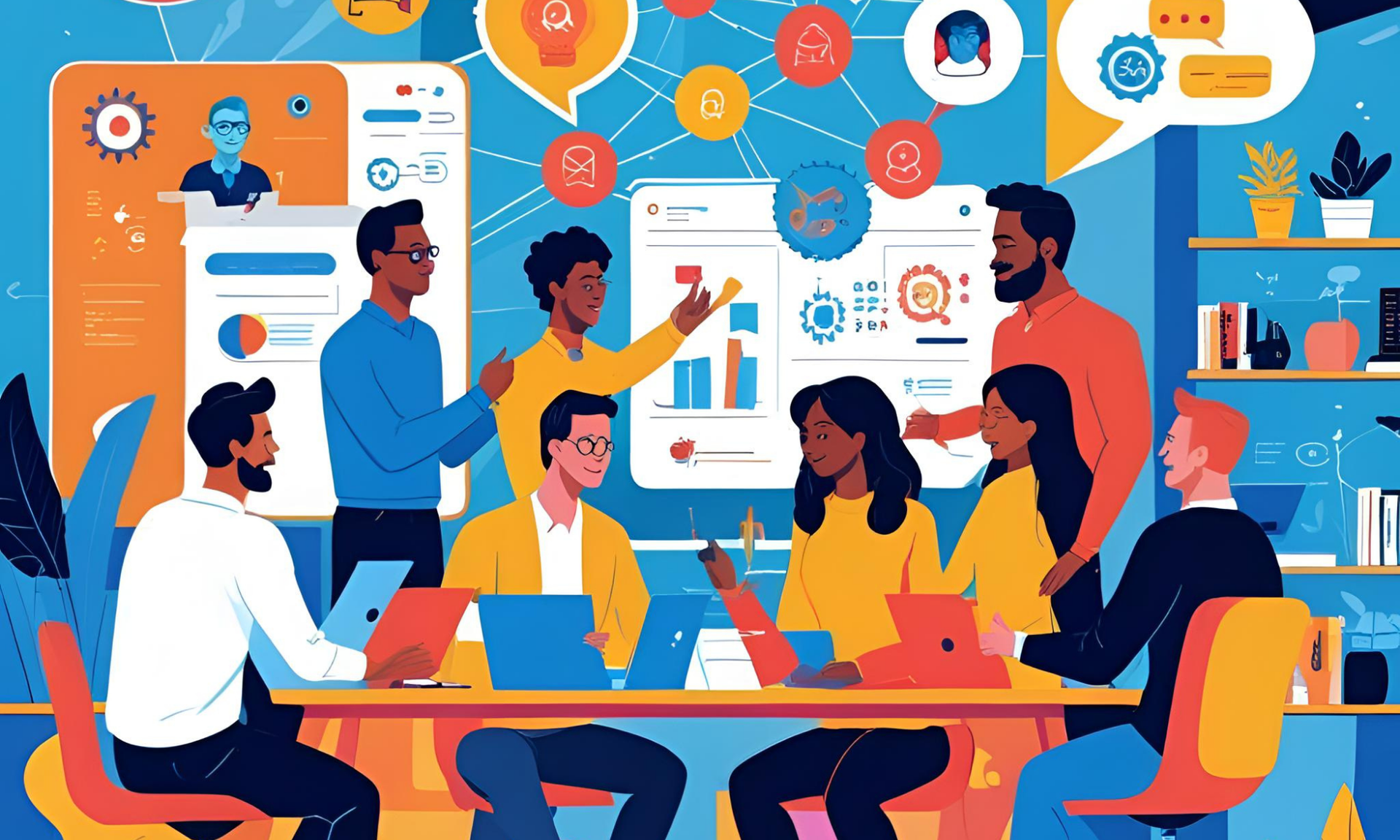
Automation in Omnichannel Marketing
Omnichannel marketing automation represents the practical application of AI in creating seamless customer experiences across all brand touchpoints. This approach ensures consistent messaging while optimizing for channel-specific behaviors and preferences.
The Foundation of Omnichannel Automation:
Successful omnichannel automation requires three core elements:
- Unified Customer Profiles: Your tools like real-time personalization, social media analytics, predictive analytics, marketing automation, CRM, and more need all of the online and offline data from your potential customers
- Real-time Data Synchronization: Instant updates across all systems when customer behavior changes
- Intelligent Journey Orchestration: AI-driven decision making about next-best actions
Channel Integration Strategies:
The most effective omnichannel strategies prioritize mobile-first approaches. The average American in 2024 spends 4 hours and 30 minutes on their phone (which is up 52% from 2022) and checks their phone 144 times per day. This usage pattern demands that all automation workflows consider mobile as the primary touchpoint.
Dynamic Content Personalization:
Ads with dynamic elements personalizes ads by changing up images, text, and calls-to-action based on real-time user data, allowing marketers to create highly engaging, data-backed, personalized content for consumers. When enhanced by AI, this approach enables "intelligent creativity" that adapts content based on performance data.
Behavioral Targeting Implementation:
Behavioral targeting involves leveraging data about a consumer's activities, preferences, and behaviors to deliver personalized and cohesive marketing messages across multiple channels. For example, a fitness brand might recommend app content, send targeted emails, and equip store staff with purchase history for comprehensive personalization.
Automation Platform Selection:
When choosing omnichannel automation platforms, prioritize solutions that offer:
- Native channel integrations
- Real-time data processing capabilities
- AI-powered optimization features
- Comprehensive analytics and attribution
- Scalable architecture for future growth
The key to successful implementation lies in starting with foundational channels and gradually expanding integration. Start with a single channel to test and refine your approach (Foundational Phase), then expand to multiple channels, iterating on your strategy based on what works (Advanced Phase).

Personalization at Scale: AI's Biggest Impact
Personalization at scale represents AI's most transformative impact on integrated marketing. Modern AI systems can deliver individualized experiences to millions of customers simultaneously, creating relevance that drives engagement and conversion.
The Economics of AI Personalization:
The business impact of AI-driven personalization is substantial. Companies that excel at personalization generate 40% more revenue from those activities than average players. This performance advantage stems from AI's ability to process vast amounts of customer data and make real-time optimization decisions.
Advanced Personalization Techniques:
Modern personalization goes far beyond basic demographic targeting. 80% of consumers are more likely to purchase from brands that provide personalized experiences. AI enables sophisticated personalization through:
Behavioral Pattern Recognition:
Identifying subtle customer behavior patterns across touchpoints
Predictive Preference Modeling
Anticipating customer needs before they're expressed
Dynamic Content Assembly
Real-time content creation based on individual customer profiles
Contextual Relevance Optimization
Adjusting messaging based on time, location, and situation
Real-time Personalization Implementation:
The most effective personalization systems operate in real-time, adjusting experiences as customer behavior changes. Hyper-personalization, driven by emerging AI technologies, will take personalized marketing to the next level. Expect real-time, multi-channel personalization thanks to tools like Dynamic Yield and Persado that integrate behavioral and transactional data.
Sentiment Analysis and Emotional Intelligence:
Sentiment analysis technology is evolving rapidly, with new AI models capable of understanding and interpreting human emotions more accurately. By 2025, marketers leverage these insights to create emotionally resonant experiences that build stronger customer relationships.
Cross-Channel Consistency:
Personalization effectiveness depends on maintaining consistency across all customer touchpoints. AI systems must ensure that personalized experiences feel coherent whether customers interact via email, social media, website, or in-store.
Privacy-Conscious Personalization:
As privacy regulations evolve, AI personalization must balance relevance with data protection. First-party data and AI enrichment and application of that data can help balance the legal and social issues that cookies endured throughout their time in our digital lives.
The future of personalization lies in creating value for customers while respecting their privacy preferences. Successful brands will use AI to enhance customer experiences without compromising trust or violating data protection requirements.

Predictive Analytics and Customer Journey Optimization
Predictive analytics powered by AI transforms how marketers understand and optimize customer journeys. By analyzing historical data and real-time behavior, AI systems can anticipate customer needs and optimize touchpoints for maximum conversion potential.
The Evolution of Customer Journey Analytics:
Traditional journey mapping relied on retrospective analysis of completed customer paths. AI-powered predictive analytics revolutionizes this approach by forecasting likely customer behavior and enabling proactive optimization.
Key Predictive Analytics Applications:
- Conversion Probability Modeling: AI calculates the likelihood of conversion at each journey stage
- Churn Risk Assessment: Early identification of customers likely to disengage
- Lifetime Value Prediction: Forecasting long-term customer worth to inform acquisition strategies
- Next-Best-Action Optimization: AI-recommended actions to maximize customer engagement
Real-time Journey Optimization:
Modern predictive systems operate in real-time, adjusting customer experiences as behavior unfolds. AI is driving clear optimization of customer interactions through predictive modeling and real-time decision-making.
Attribution and Multi-Touch Analysis:
AI-powered attribution models solve the complex challenge of understanding how multiple touchpoints contribute to conversions. These systems use machine learning to weight the influence of each interaction, providing more accurate ROI calculations than traditional last-click attribution.
Behavioral Signal Detection:
Advanced predictive analytics can identify subtle behavioral signals that indicate customer intent. For example, AI might detect that customers who view product pages for more than 45 seconds and then visit pricing pages have an 87% probability of purchasing within 7 days.
Journey Personalization at Scale:
Predictive analytics enables dynamic journey personalization for millions of customers simultaneously. AI systems create individual journey maps that adapt based on real-time behavior, ensuring each customer receives optimized experiences.
Implementation Best Practices:
Successful predictive analytics implementation requires:
- High-quality, unified customer data
- Clearly defined success metrics and KPIs
- Regular model training and validation
- Cross-functional collaboration between marketing, data science, and IT teams
- Continuous testing and optimization of predictive models
The ultimate goal is creating self-optimizing marketing systems that continuously improve performance while reducing manual intervention requirements.
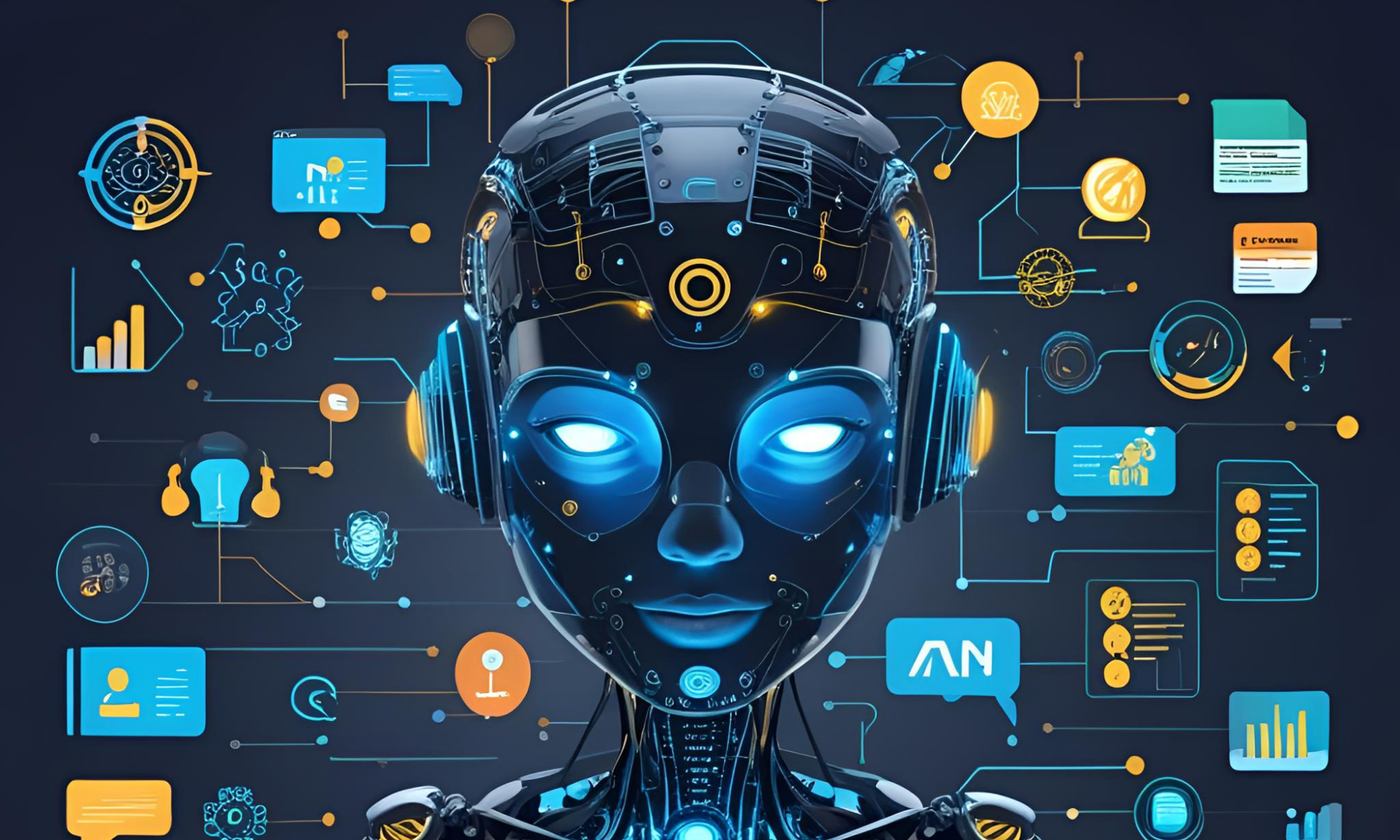
AI-Powered Content Creation and Optimization
AI-powered content creation and optimization represent a paradigm shift in how marketers produce and refine marketing materials. Modern AI systems can generate, test, and optimize content across multiple formats and channels simultaneously.
The Content Creation Revolution:
AI content creation has evolved beyond simple text generation to encompass comprehensive content strategy. Tools like Clarabridge and Brandwatch are taking sentiment analysis to the next level—beyond polarity to contextual emotion detection, enabling content that resonates emotionally with target audiences.
Multi-Format Content Generation:
Modern AI platforms create content across multiple formats:
- Text Content: Blog posts, email copy, social media content, and ad copy
- Visual Content: Image generation, video creation, and graphic design
- Audio Content: Podcast scripts, voiceovers, and audio ad creation
- Interactive Content: Quizzes, polls, and dynamic web experiences
Dynamic Content Optimization:
AI systems continuously optimize content performance through real-time testing and adaptation. In 2025, expect to see this tried-and-true technology enhanced by AI, which enables even deeper insights into how to best reach target audiences.
Content Performance Intelligence:
Advanced AI analytics provide granular insights into content performance:
- Engagement pattern analysis across different audience segments
- Optimal posting times and frequency recommendations
- Content format preferences by customer type
- Sentiment analysis and emotional response tracking
SEO and Content Optimization:
AI-powered SEO tools optimize content for both traditional search engines and emerging AI-powered search platforms. This includes:
- Semantic keyword optimization
- Featured snippet targeting
- Voice search optimization
- AI search query optimization
Brand Voice Consistency:
AI systems can maintain consistent brand voice across all content while adapting tone for different channels and audience segments. This ensures brand coherence while maximizing channel-specific effectiveness.
Automated A/B Testing:
AI enables sophisticated multivariate testing of content elements, automatically identifying winning combinations and implementing optimizations without manual intervention.
Content Personalization at Scale:
AI can create personalized content variations for different audience segments, locations, or individual customers, scaling personalization efforts that would be impossible to manage manually.
Quality Assurance and Human Oversight:
While AI dramatically enhances content creation efficiency, successful implementations maintain human oversight for brand alignment, fact-checking, and strategic direction. Marketers who can effectively combine AI's capabilities with human expertise will have a clear advantage in 2025.

Measuring ROI and Performance in AI Marketing
Measuring ROI and performance in AI-powered integrated marketing requires sophisticated analytics frameworks that capture the complex interactions between automated systems and customer behavior. Traditional marketing metrics must evolve to account for AI's multi-touchpoint influence.
Advanced Attribution Modeling:
AI marketing demands attribution models that understand complex customer journeys. Track these key performance indicators to measure integration effectiveness: Cross-channel conversion rates, Journey completion percentage, Attribution-weighted ROI, Message consistency score, Channel synergy impact.
AI-Specific Performance Metrics:
Key metrics for AI marketing performance include:
- Automation Efficiency: Time saved through AI vs. manual processes
- Prediction Accuracy: How well AI models forecast customer behavior
- Personalization Lift: Performance improvement from AI-driven personalization
- Real-time Optimization Impact: Revenue gains from dynamic adjustments
Revenue Impact Measurement:
The most critical measurement focuses on incremental revenue generated by AI capabilities. Studies show that AI marketing can deliver substantial returns: companies implementing comprehensive AI strategies often see 20-30% improvements in marketing efficiency and customer engagement.
Cross-Channel Performance Analysis:
AI marketing measurement must account for channel synergy effects. According to a study by The CMO Club, 82% of respondents surveyed felt an inability to measure cross-channel performance is standing in the way of their omnichannel marketing success.
Real-time Performance Monitoring:
AI systems enable real-time performance tracking and optimization. Marketers can monitor campaign performance continuously and make data-driven adjustments as conditions change.
Customer Lifetime Value Enhancement:
AI marketing's impact on customer lifetime value represents a crucial long-term metric. According to a Harvard Business Review study, omnichannel customers spend an average of 4% more on every shopping occasion in-store and 10% more online than single-channel customers.
Cost Efficiency Metrics:
AI marketing measurement should include:
- Cost per acquisition improvements
- Customer service automation savings
- Content creation efficiency gains
- Manual task reduction quantification
Quality Score Development:
Implement quality scores for AI-generated content and customer interactions to ensure automation maintains brand standards while improving efficiency.
Predictive Performance Modeling:
Use AI to predict future performance based on current trends, enabling proactive strategy adjustments and resource allocation optimization.

Implementation Strategies for Businesses
Successful AI marketing implementation requires a structured approach that balances technological capability with organizational readiness. The most effective strategies begin with clear objectives and scale systematically.
Phase 1: Foundation and Assessment
Begin implementation with a comprehensive audit of current marketing capabilities and infrastructure. This includes mapping customer journeys across channels, identifying inconsistencies in messaging, analyzing how data is shared between teams, and evaluating how well your channels support each other.
Essential Foundation Elements:
- Data Infrastructure: Ensure clean, unified customer data across all systems
- Technology Stack Integration: Audit existing martech and identify integration requirements
- Team Skills Assessment: Evaluate current AI/data science capabilities
- Success Metrics Definition: Establish clear KPIs for AI marketing initiatives
Phase 2: Pilot Implementation
Start with high-impact, low-risk use cases to build organizational confidence and demonstrate value. Common pilot areas include:
- Email marketing automation and personalization
- Basic chatbot implementation for customer service
- Simple predictive analytics for lead scoring
- Content optimization through A/B testing
Technology Selection Criteria:
Choose a marketing automation platform that supports omnichannel capabilities, including campaign management, robust analytics, and seamless integration with existing tools. Prioritize platforms that offer:
- Native AI capabilities
- Strong data integration features
- Scalable architecture
- Comprehensive analytics and reporting
- User-friendly interfaces for non-technical team members
Phase 3: Scale and Optimization
After successful pilot implementation, gradually expand AI capabilities across additional channels and use cases. This phased approach allows for gradual improvement and scalability, so your marketing efforts are efficient and effective.
Change Management Strategies:
Successful AI implementation requires careful attention to organizational change management:
- Provide comprehensive training on AI tools and concepts
- Establish clear governance frameworks for AI decision-making
- Create feedback loops for continuous improvement
- Maintain human oversight for brand-critical decisions
Data Privacy and Compliance:
People will talk about ethical AI transparency in marketing: Consumers are becoming more aware of how their data is being used. Ensure implementation includes robust privacy protection and compliance frameworks.
Performance Monitoring and Iteration:
Establish regular review cycles to assess AI performance and make necessary adjustments. Organizations conducting weekly integrated performance reviews typically see 3-5× better results than those operating channels independently.
Investment and Resource Planning:
Budget for both technology costs and human resources required for successful implementation. Consider costs for:
- Platform licensing and implementation
- Data integration and migration
- Team training and skill development
- Ongoing optimization and maintenance

Future Trends and Predictions {#future-trends-predictions}
The future of AI and automation in integrated marketing points toward increasingly sophisticated, autonomous systems that operate with minimal human intervention while maintaining brand authenticity and customer trust.
Autonomous Marketing Systems:
An AI agent can autonomously perform many tasks, such as handling routine customer inquiries, producing "first drafts" of software code or turning human-provided design ideas into prototypes. The evolution toward autonomous marketing represents the next frontier, where AI agents manage entire campaign lifecycles independently.
Advanced AI Agent Integration:
The future includes AI agents that coordinate complex marketing operations:
Campaign Management Agents
Autonomous systems that plan, execute, and optimize campaigns
Content Creation Agents
AI that produces brand-consistent content across all formats
Customer Service Agents
Advanced conversational AI handling complex customer interactions
Analytics Agents
Systems that interpret data and provide strategic recommendations
Conversational AI Evolution
Conversational interfaces have transformed from novelty to necessity in the omnichannel landscape. Future developments will include more natural, context-aware conversations that feel increasingly human-like.
Augmented Reality and AI Integration
The integration of AI with augmented reality (AR) is another emerging trend set to impact marketing significantly. AI-enhanced AR experiences will provide customers with interactive and immersive ways to engage with products and brands.
Voice Search and Audio AI Expansion
Voice search and conversational AI will be on the rise: Voice search is becoming more integrated into daily life, optimizing for voice-driven queries will become crucial. Future implementations will include:
- Voice-optimized content strategies
- Audio-first marketing channels
- Smart speaker integration for brand experiences
- Voice commerce optimization
Ethical AI and Transparency
Ethical AI practices will become an increasingly larger topic over the next 12 months. Future AI marketing will prioritize:
- Transparent AI decision-making processes
- Clear data usage policies
- Bias detection and mitigation
- Customer control over AI interactions
Industry-Specific AI Applications
Different industries will develop specialized AI marketing applications:
- Retail: Advanced visual recognition for product recommendations
- Healthcare: Compliance-aware personalization systems
- Financial Services: Risk-based marketing optimization
- Manufacturing: B2B relationship management automation
Technology Integration Predictions
Future AI marketing will seamlessly integrate with emerging technologies:
- IoT Integration: Smart device data informing marketing strategies
- Blockchain: Enhanced data security and customer verification
- 5G Networks: Real-time, location-based marketing capabilities
- Edge Computing: Faster, more responsive AI processing
Skills and Workforce Evolution
As AI tools become more sophisticated and accessible, marketing teams are rethinking their approach to outsourcing. Tasks that were once handed off to external agencies are increasingly being brought in-house.
The workforce will need to adapt with new skills in:
- AI strategy development
- Data interpretation and analysis
- Human-AI collaboration
- Ethical AI implementation
Prediction Timeline:
- 2025-2026: Mainstream adoption of AI agents for routine marketing tasks
- 2026-2027: Sophisticated AR/AI integration becomes standard
- 2027-2028: Autonomous marketing systems handle complex strategic decisions
- 2028-2030: AI marketing achieves human-level creativity and strategic thinking
Conclusion
The future of integrated marketing lies in the intelligent fusion of AI and automation technologies that create seamless, personalized customer experiences at unprecedented scale. As we advance through 2025 and beyond, the organizations that successfully implement AI-driven marketing strategies will gain significant competitive advantages through enhanced efficiency, improved customer engagement, and measurable revenue growth.
Key Success Factors:
The most successful AI marketing implementations focus on strategic integration rather than technology adoption for its own sake. Marketers who can effectively combine AI's capabilities with human expertise will have a clear advantage in 2025, and they'll be able to craft campaigns that are both scalable and deeply resonant.
Strategic Imperatives:
Three critical imperatives emerge for marketers embracing AI and automation:
- Start with Foundation: Build robust data infrastructure and clear success metrics before scaling AI implementations
- Maintain Human Oversight: Balance automation efficiency with brand authenticity and strategic direction
- Iterate Continuously: Establish regular optimization cycles to maximize AI performance and ROI
The Competitive Landscape:
Organizations that delay AI adoption risk falling behind competitors who are already realizing the benefits of automated personalization, predictive analytics, and optimized customer journeys. Integrated digital marketing isn't just about making channels work together—it's about creating cohesive experiences that match how your customers actually engage with your brand.
Future-Proofing Your Strategy:
As AI technology continues to evolve rapidly, the most successful marketing strategies will be those that remain adaptable while focusing on fundamental customer value creation. The future belongs to organizations that can harness AI's power while maintaining authentic human connections with their customers.
The transformation is not optional—it's inevitable. The question is not whether to embrace AI and automation in integrated marketing, but how quickly and effectively your organization can implement these technologies to drive sustainable growth and enhanced customer experiences.
Take Action Today:
Ready to transform your marketing with AI and automation? Discover how Meta Marketing's integrated digital marketing systems can help you achieve measurable results. Our proven framework has helped companies across industries increase retention by 91% through strategic AI implementation.
Contact Meta Marketing for a free strategy session to explore how AI-powered integrated marketing can accelerate your business growth.
Frequently Asked Questions
How is AI changing the landscape of integrated marketing in 2025?
AI enables real-time personalization, predictive analytics, and automated content delivery across all channels, allowing marketers to create more relevant and efficient campaigns at scale.
What are the top AI technologies used in marketing today?
In 2025, key technologies include machine learning algorithms, natural language processing (NLP), predictive analytics engines, and AI-powered content generation tools.
Can small businesses benefit from AI-powered marketing tools?
Yes, many AI marketing platforms offer scalable solutions tailored for small and mid-sized businesses, helping them compete effectively through automation and data-driven insights.
What ethical concerns should marketers be aware of when using AI?
Marketers must ensure data privacy, eliminate algorithmic bias, maintain transparency in AI decisions, and avoid manipulative tactics to build and retain customer trust.
How does AI improve customer journey optimization?
AI analyzes user behavior across touchpoints to predict next steps, automate nurturing flows, and deliver personalized content — significantly improving the customer experience and boosting conversions.
What are some examples of AI-powered content creation?
Tools like ChatGPT, Jasper, and Copy.ai generate blog posts, social media captions, product descriptions, and ad copy using machine learning trained on large datasets.
How can businesses measure ROI on AI marketing investments?
Businesses should track metrics like customer lifetime value, conversion rates, campaign efficiency, and engagement improvements to evaluate the effectiveness of AI implementations.
Is it difficult to implement AI into existing marketing strategies?
Implementation can start small — many businesses begin with specific tools (like AI chatbots or email personalization engines) before fully integrating AI across all marketing functions.














